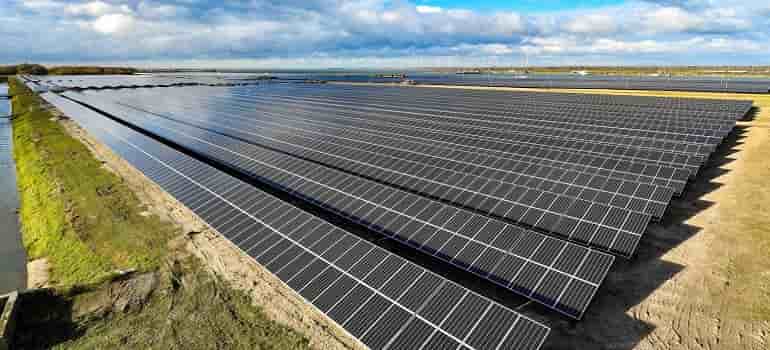
Auctions for around 8,000 MW solar capacities worth Rs 40,000 crore were cancelled in 2018-19, leaving developers and investors high and dry, according to an industry source.
Solar project developers continued to face uncertainties in 2018-19 as central and state government agencies as well as a private distribution company cancelled bids for 8,000 MW.
“Bids were invited by government (s) as well as private distribution firms to procure around 8000 MW solar power last fiscal from newly developed capacities. But auctions were cancelled later on,” the source said.
It is as high as about 8,250 MW solar capacity added in 2018.
The scrapping of bids has hit India’s ambitious target of
achieving 1,00,000 MW of solar capacity by 2022. The country has achieved
26,025.97 MW solar capacity till February this year.
Initially, India was targeting 20,000 MW solar power by 2022. In 2015, this
target was raised to 1,00,000 MW within the same time line. Now experts are
finding this target unachievable.
India could add only about 8,250 MW of solar capacity in 2018, which was 15.5
per cent less than 9,775 MW added in 2017, the source said.
In 2018-19, Gujarat and Uttar Pradesh state agencies cancelled 1,200 MW and
1,000 MW of bids, respectively.
Central government’s Solar Energy Corporation of India (SECI) cancelled 2,400
MW out of 3,300 MW of Interstate Transmission System (ISTS) connected solar
auction. Subsequently, SECI scrapped 3,000 MW of manufacturing linked bid.
Moreover, private electricity distribution major Torrent Power scrapped its bid
to purchase 300 MW of solar power to meet its renewable energy
purchase obligation.
The move came after Adani Green and Avaada submitted their bids to supply 100
MW and 50 MW, respectively. The last date for the bid to procure solar power
for 25 years was extended from February 12 to March 15 before Torrent Power
scrapped the auction.
Torrent Power distributes electricity in Ahmedabad-Gandhinagar, Surat, Agra and
Bhiwandi. With Torrent Power too scrapping the bid, the woes of the sector have
escalated owing to issues like uncertainty over safeguard duty on imported
solar components, restructuring of External Commercial Borrowing norms by RBI
and introduction of GST.
“Uncertain policies and serial cancellation of the solar bids will
cloud the success of the biggest ever bid planned by SECI for 10,000 MW. Bid
cancellation by Torrent Power has taken toll on our confidence in the so called
sunrise sector,” said a top executive with a leading solar project developing
company.
According to experts, bids are being scrapped in India in view of the race for
lower tariff at a time when unreasonable competition has jeopardised financial
viability of several solar power projects.
Policy flip-flops and concerns over capping of tariffs have also led to
developers shying away from participating in the bids. Earlier, SECI had to
extend or scrap bids since capping the tariff did not generate adequate
response.
In its report earlier this month, rating agency CRISIL estimated that solar
power installations will reach only 70,000 MW by 2023, falling 30 per cent
short of the target.
The report added that developer sentiment had turned negative due to lack of
clarity on several policy issues and arbitrary bid cancellations, contrary to a
supportive policy stance.
Source: PTI
MORE TO READ:
Ukkadam solar power plant helped the city corporation save Rs 16 lakh: Report
10 things you should know about MNRE’s quality control order for solar thermal systems
SMEs in India are hesitant to install rooftop solar panels: Deloitte survey

